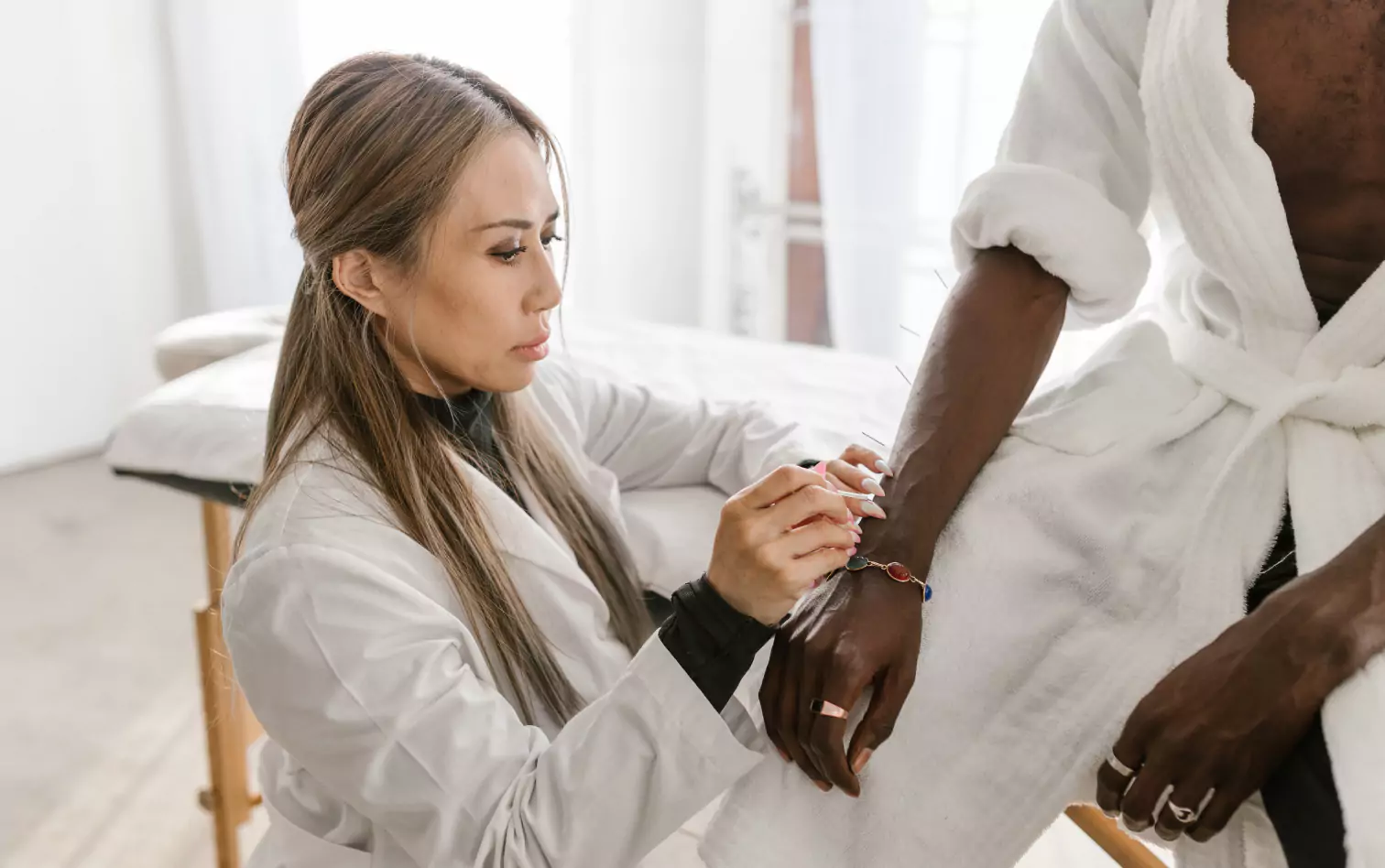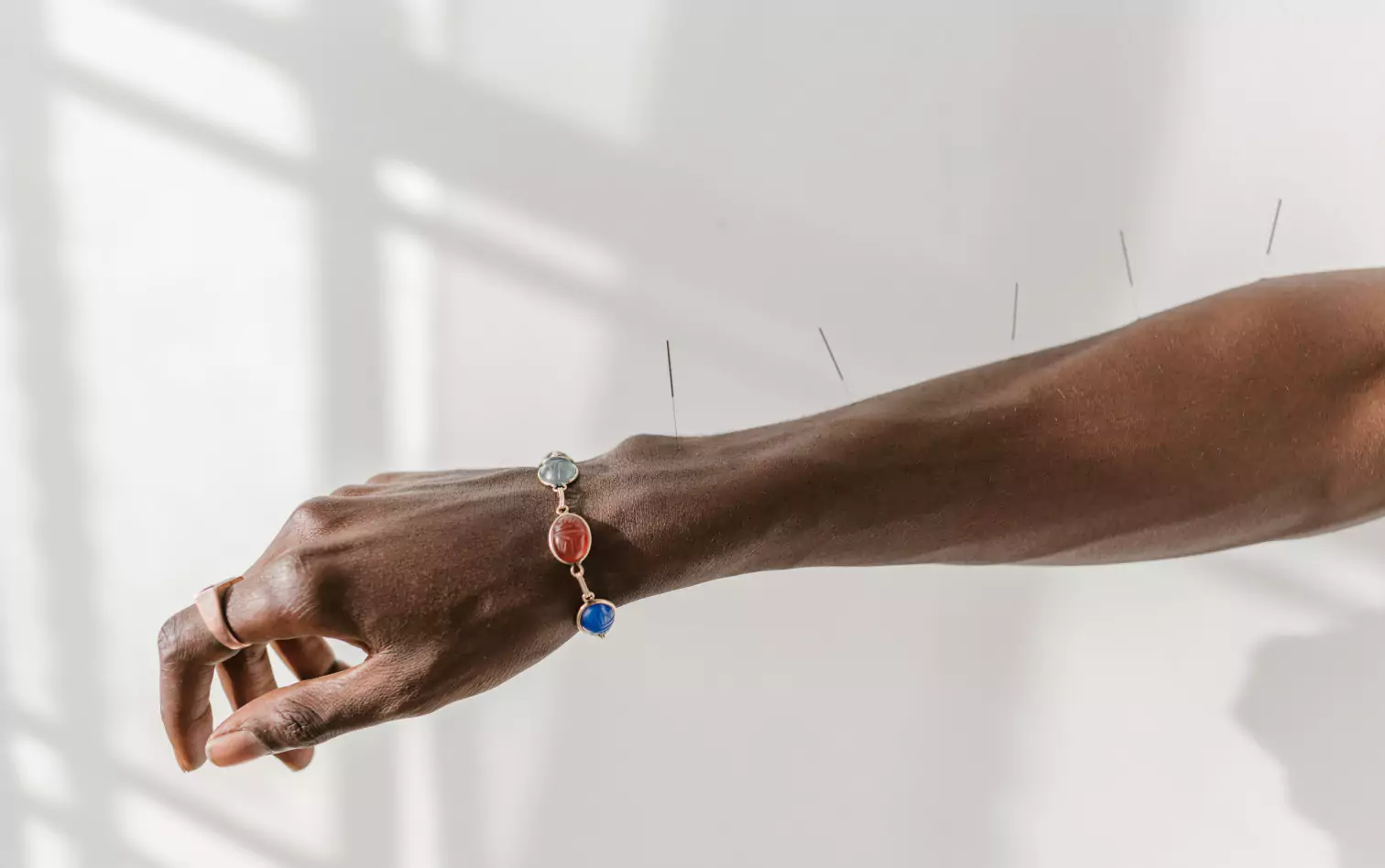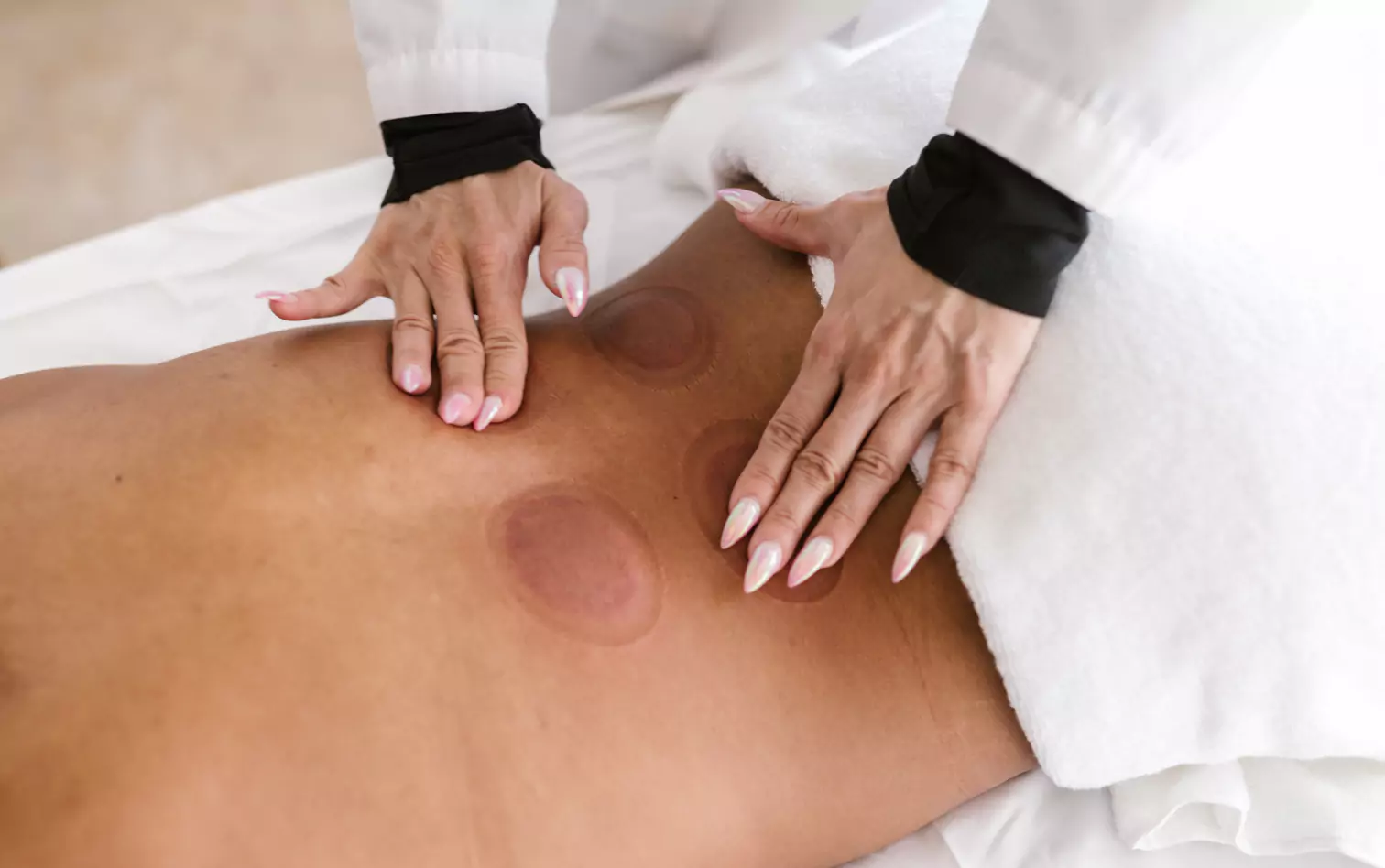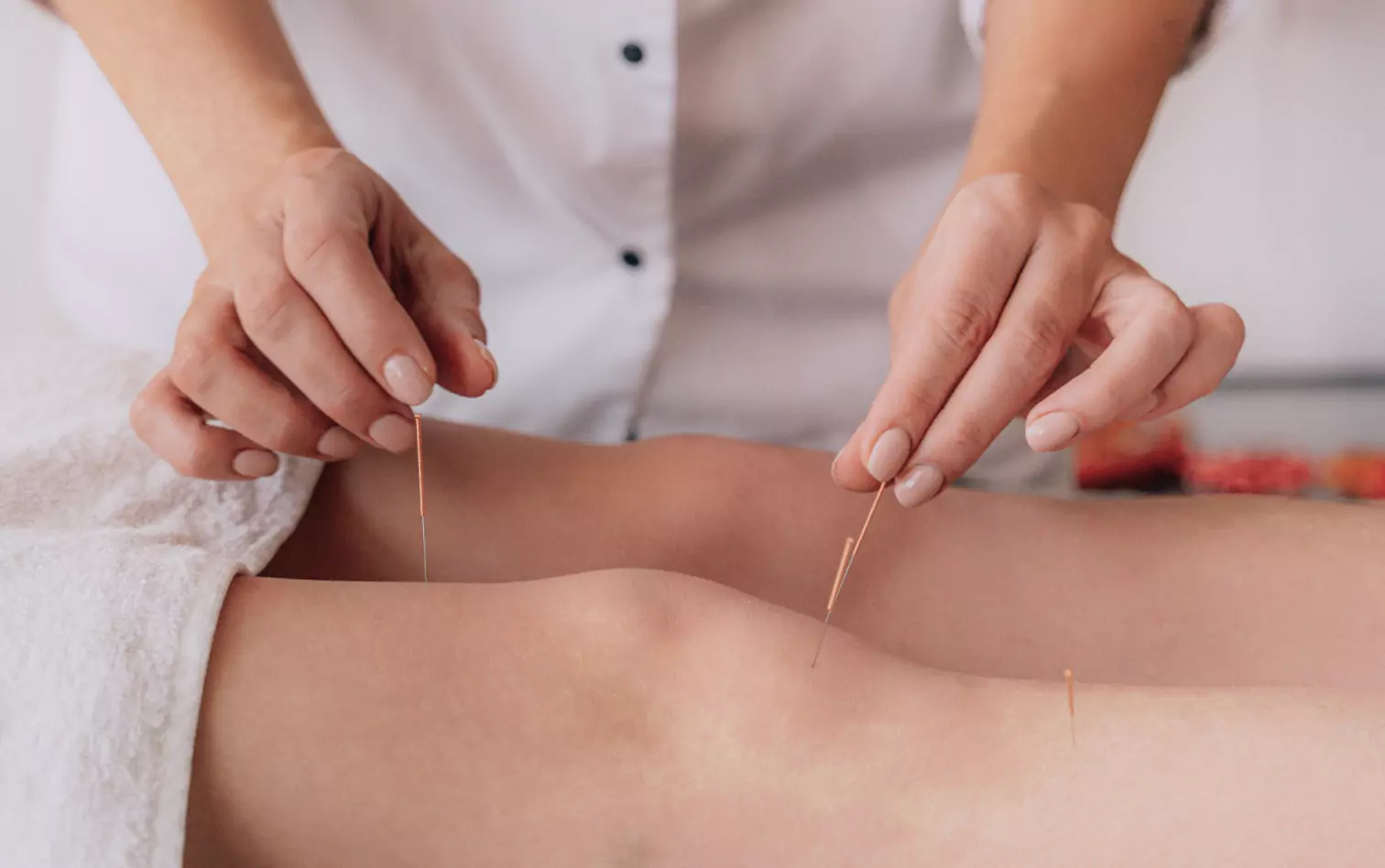What You Should Know About Acupuncture

Key Takeaways
If you're interested in alternative medicine and occasionally like to look beyond mainstream medicine to see what's out there, here's an interesting one for you!
We're sure you've heard of acupuncture, a form of alternative medicine that involves inserting needles into your body for pain and stress relief. But what is acupuncture? What do we know about this traditional medicine, and what are the benefits and risks involved? Read on to find out more.
A Brief History of Acupuncture

Traditional medicine involves approaches and beliefs that look at wellness a little differently than we're used to, and acupuncture is one of them. More specifically, acupuncture is a form of traditional Chinese medicine that's believed to have been practiced for over 2,000 years.
It's said to stimulate the body's natural healing processes and restore balance. The first mention of it as a medical practice may stretch as far back as 6000 BCE. And although research on the exact origins is still ongoing, it has a fascinating history so far.
The practice as we know it today is considered a holistic approach to health and wellbeing, used to treat various conditions. In recent years, acupuncture has become more popular in the West, now often recognized as an effective treatment for specific health problems like low back pain.
Of course, all those needles can make acupuncture seem pretty scary. Still, if you're not opposed to a little prick (it doesn't really hurt, but more on this later), you may want to learn more about why there's so much buzz around this therapy. What does the data suggest? Does it work, or is it just another wellness fad? Opinions on whether this branch of complementary and alternative medicine works or not are definitely divided, but here's some of what we know so far!
What Does Acupuncture Involve?

Simply put, acupuncture involves inserting thin needles into your body at specific points known as acupuncture points. Practitioners suggest the treatment for various conditions, including chronic pain, anxiety, and infertility.
According to ancient texts and traditional beliefs, acupuncture works by stimulating energy flow or what Chinese philosophy calls "qi" through the body. Practitioners place acupuncture needles into meridian points throughout your body—pathways they believe the qi flows through. The treatment is considered to help you re-balance your energy flow and help your body heal.
Those who believe in the benefits of acupuncture often suggest using it in conjunction with conventional medicine to treat a number of health conditions. Some of the most common conditions include:
- Arthritis
- Chemotherapy-induced Nausea and Vomiting
- Sports Injuries
- Headaches (including Tension Headaches and Migraines)
- Immune System Conditions
- Irritable Bowel Syndrome (IBS)
- Labor Pain
- Low Back Pain
- Neck pain
- Osteoarthritis
- Menstrual Cramps
- Respiratory Disorders (like Allergic Rhinitis)
- Dental Pain
Does Acupuncture Hurt?

Acupuncture can sound quite scary (eek, needles!), making some people who are interested in it afraid to try it. But does acupuncture hurt? Will an acupuncture session for pain relief cause more... pain? Probably not!
Acupuncture needles are very thin, and most patients feel very little or no discomfort during procedures. Licensed practitioners will insert these needles into points that may result in a feeling of pressure or a low ache. If you feel this, it's because the needles are doing their job, working on the acupuncture point to help you feel better.
However, pain any greater than mild discomfort is not normal. If you choose to try this treatment, keep an open line of communication about your comfort level during your procedure with the acupuncturist that is treating you.
The Five Steps of Acupuncture

Step 1: Consultation
- Before inserting any needles, a licensed acupuncturist will discuss your health history. They will also discuss lifestyle habits, aches, pains, illnesses, and anything else that may be bothering you.
- Your practitioner will check your pulse at various points on your body, look at the color of your tongue, and check the color in your face, as it's said to reveal more about everything from the state of your circulation to organ health.
Step 2: Insertion
- Your acupuncturist will discuss the points that need to be treated and then insert needles into each of those points.
- The sterile single-use needles will usually remain inserted in the acupuncture points for 10-20 minutes.
Step 3: Needle Manipulation
- Once the needles are in, your acupuncturist may move them in a small circular motion to stimulate the acupuncture point.
- Some practitioners may use mild electrical pulses in conjunction with the treatment.
Step 4: Removal
- Once your practitioner determines that the needles have been in place long enough, they will remove them.
- Like insertion, the idea of removing needles inserted into your body can seem scary, but this is usually painless.
Step 5: Post-Treatment Sensations
- Acupuncture can result in different sensations after the treatment.
- Some people feel more relaxed than before the procedure, and some people find that they feel more energized.
- In rare instances, you may feel your symptoms feel worse before they begin to improve. If this happens, make sure you let your acupuncturist know without delay, so you can discuss your concerns accordingly.
Other Treatment Methods

Some acupuncturists will use other methods of treatment alongside the traditional needles. These treatments may include:
Cupping: This method uses suction cups to bring blood vessels to the acupuncture point that your acupuncturist is targeting.
Herbs: Your acupuncturist may recommend that you take herbs orally. A note of caution here: before adding anything to your diet, make sure that both your acupuncturist and your doctor know about your dietary needs, medical conditions, and family history. It can be dangerous to combine certain herbs with medications or pre-existing conditions.
Massage: Acupuncturists may use massage to apply pressure to various acupuncture points.
If you're interested in acupuncture, it's essential to do your research and find a practitioner that has a reputable license and a good reputation. One of the side effects of incorrectly administered acupuncture can include pain caused by needles incorrectly inserted or unsanitized needles.
So, finding the right practitioner with the proper training and credentials is crucial. An excellent place to start is by talking with a medical doctor who may have an acupuncturist in mind that they can recommend to you.
What Happens in Your Body During Acupuncture Treatments?

Acupuncture is believed to unblock the energy flow, or qi, in the body and restore balance. Practitioners trained in traditional Chinese acupuncture learn about the hundreds of acupuncture points in your body to realign your qi and help your body to heal from imbalances.
According to this belief, practitioners reach these acupuncture points with needles that stimulate the central nervous system. With those points stimulated, your body releases chemicals into your muscles and tissues. It's believed that these reactions will, in turn, boost your body's natural healing processes and promote physical and emotional wellbeing.
How Often Do You Need Acupuncture Treatments?
If you're interested in trying acupuncture, the first thing you should do is consult with a healthcare professional to make sure you're doing so as safely as possible. It will include having a vague idea of the number of treatments that are typical for your specific issue and your specific body type.
How often you need acupuncture treatments depends on your condition and how well you respond to treatment. Some people need treatments every week or two, while others only need them every few months. In some cases, more frequent treatments may be necessary, while others may only require occasional tune-ups.
Most patients find that they feel relief after a few sessions, while others take longer to see results. Occasionally, patients find relief in just one session. It will also depend on your comfort level and what you feel like you're getting out of the treatment. Ultimately, it's best to work with an experienced acupuncturist to establish the right treatment plan for you.
Some Data and Interesting Facts About Acupuncture

Trials on acupuncture involve a lot of variances, which means scientific reviews are always ongoing. It's a good idea to stay abreast of recent information and studies to make an informed decision about your health. Here's some interesting data and facts that may help you get started:
- Some of the first mentions of acupuncture as a form of treatment for various painful conditions were in various ancient texts, including "The Yellow Emperor's Classic of Internal Medicine" and "The Great Compendium of Acupuncture and Moxibustion."
- This alternative medicine does not have the best reputation among healthcare professionals in the West, most notably a piece in the journal "Anesthesia and Analgesia" that called it a theatrical placebo. You will find some controlled trials, small studies, and meta-analyses that point to potential benefits. Still, it's quite a controversial subject in the healthcare community and likely requires more extensive research.
- The popularity of acupuncture hasn't been affected by these trials, systematic reviews, and criticisms of the practice. It's risen in popularity over the past 40 years, as has the research into it, with annual publications on the subject increasing over the last decade. Some peer-reviewed pieces on the effectiveness of acupuncture find that although more research is necessary, there's compelling evidence that it may be helpful for chronic pain.
- Although these are mainly animal studies, and the results are not persuasive enough yet, researchers have also tested the relationship between acupuncture and blood glucose.
- The treatment first made waves in America in the '70s thanks to an article in the New York Times about a journalist's experience with the "needle and herbal medicine" in Peking.
- As many as 14 million Americans have tried acupuncture in their lifetime. Many seek out this integrative medicine for chronic pain and other painful conditions that affect overall health.
- Since 2020, the Centers for Medicare & Medicaid Services began covering up to 12 acupuncture visits over 90 days for chronic low back pain.
- In America, acupuncture needles are considered single-use medical devices. They're regulated as such (the sterile needles have to be used by licensed practitioners) by the U.S. Food and Drug Administration (FDA).
Our Experts on Acupuncture
What do the experts at Nutrisense think of this alternative medicine? Here are two of our dietitians on acupuncture:
Victoria Eaton, RD
"Acupuncture has been part of Traditional Chinese medicine for centuries. While there's still debate about the efficacy and science behind acupuncture, it can be a good/safe option to explore if you're interested in a holistic healing approach. Personally, I've seen some benefits of acupuncture on anxiety, headaches, and joint pain."
Bahar Brocken, RD
“While acupuncture may seem like an unfamiliar and unconventional treatment, there is growing evidence that it can be an effective way to treat a variety of conditions. I believe that it’s a healthy option worth exploring if someone is interested and curious about it!”
Find the right Nutrisense programto turn insight into progress.
Go Beyond Glucose Data with Nutrisense
Your glucose can significantly impact how your body feels and functions. That’s why stable levels are an important factor in supporting overall wellbeing. But viewing glucose isn't enough. Nutrisense, you’ll be able to learn how to use your body's data to make informed lifestyle choices that support healthy living.
One-to-one coaching
Sign up to access insurance-covered video calls to work with a glucose expert: a personal registered dietitian or certified nutritionist who will help tailor your lifestyle and diet to your goals.
Monitor and measure what matters
With the Nutrisense CGM Program, you can monitor your glucose with health tech like glucose biosensors and continuous glucose monitor (CGM)s, and analyze the trends over time with the Nutrisense App. This will help you make the most informed choices about the foods you consume and their impact on your health.
Find your best fit
Ready to take the first step? Start with our quiz to find the right Nutrisense program to help you take control.

Natalie received her degree in Dietetics from Mansfield University and a Master’s in Clinical Nutrition from the University at Buffalo. Her career has included nutrition education and program development in her local community, adjunct faculty at several collegiate institutions, and clinical nutrition in both inpatient and outpatient settings.




